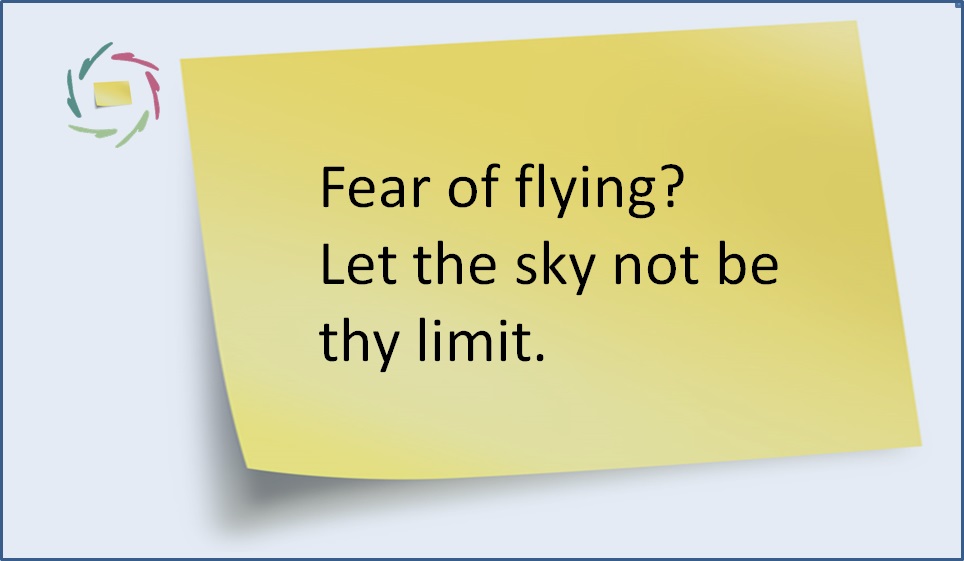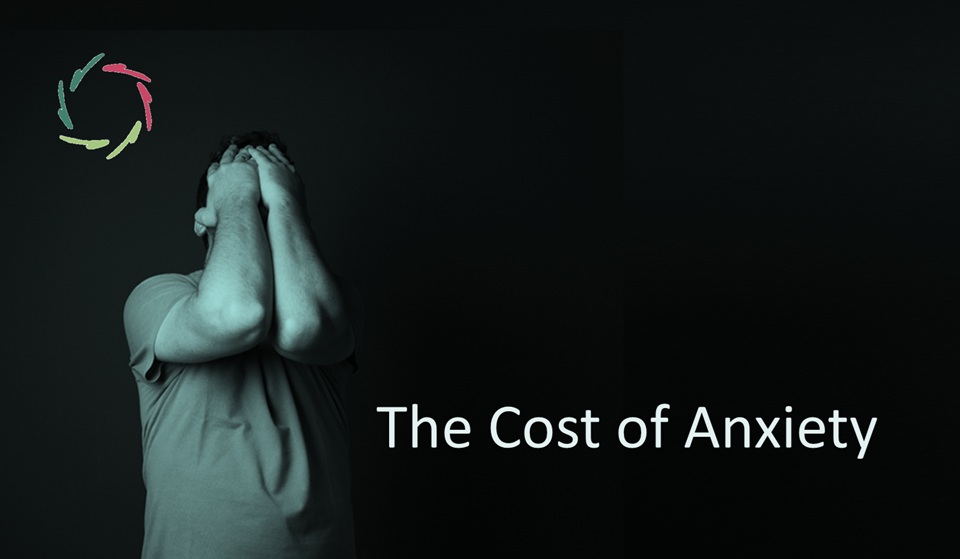35. Fear of flying? Let the sky not be thy limit.

The world is becoming smaller and smaller. Airplanes are getting bigger and bigger. Only fear of flying remains the same. This means that more and more people are in a position that they need to fly, or would like to fly, but are afraid to. The airport is their closed door.
◊◊◊
I have good news: with proper tools you can work on this problem in a way that lifts you up without pulling you down. Every person has mental wings. The idea is that you learn to use them. That way you will fly above your fears. Let the sky not be thy limit anymore…
◊◊◊
OK? Enough peptalk.
◊◊◊
But it’s not only peptalk. There’s truth on this runway. You can use it if before take-off you accept the following: fear of flying, like any exaggerated fear, lives in the subconscious. With open eyes, this is easy to see. Any kind of fear is psychological. Well then, since this is an irrational threat and since you cannot consciously choose to have fear of flying or not, there is only one possible domain where it can reside: the subconscious. The subconscious is not a land at the other side of the ocean. It’s an inner land, always present. It has many things to give if you know how to ask. If however you wage a war against it, you can only pillage it. You’re pillaging yourself.
◊◊◊
So please don’t wage a war against your fear of flying. Don’t try to squeeze it out of you. You yourself are the lemon. Keep your juice. Keep it and transform it if it bothers you. This is: don’t force yourself into a fearful situation, not even while playing the pilot. Rehearsing a flight is in principle a good idea, but doing it while forcing yourself to overcome fear enhances the problem in a broad sense. It opens the scar, deepens the underlying groove even while at the surface it may appear different.
◊◊◊
A problem that lives in the subconscious is, whenever possible, better solved in and by the same. Consciously, you can very much enhance this by sending invitations and support. Very important is that if you do this in a good way, no fear at all is needed. Fear even becomes an indicator of not being on the right track.
◊◊◊
Rehearsing a flight without any fear, how to do that? Most importantly: you do it very cautiously. You start with a good relaxation and you never leave this. You keep the feeling of full control, even in your imagination, all the time through. When a fear appears at the horizon, you stop. This is no failure. It’s an important part of a deeper learning process. The ‘fear of flying’ is your communication partner. Feeling it as fear does not enhance the communication. Different methods can be used for the communication, but they all start from this same principle.
◊◊◊
How much of this communication is needed? That is always different. It depends very much upon the quality of the communication. You can be sure of one thing though: if your subconscious is not afraid of flying anymore, you are not afraid of flying anymore. There is simply nothing left in you that might be afraid.
◊◊◊
Congratulations then: the space is yours, as well outside as inside you!
◊◊◊


